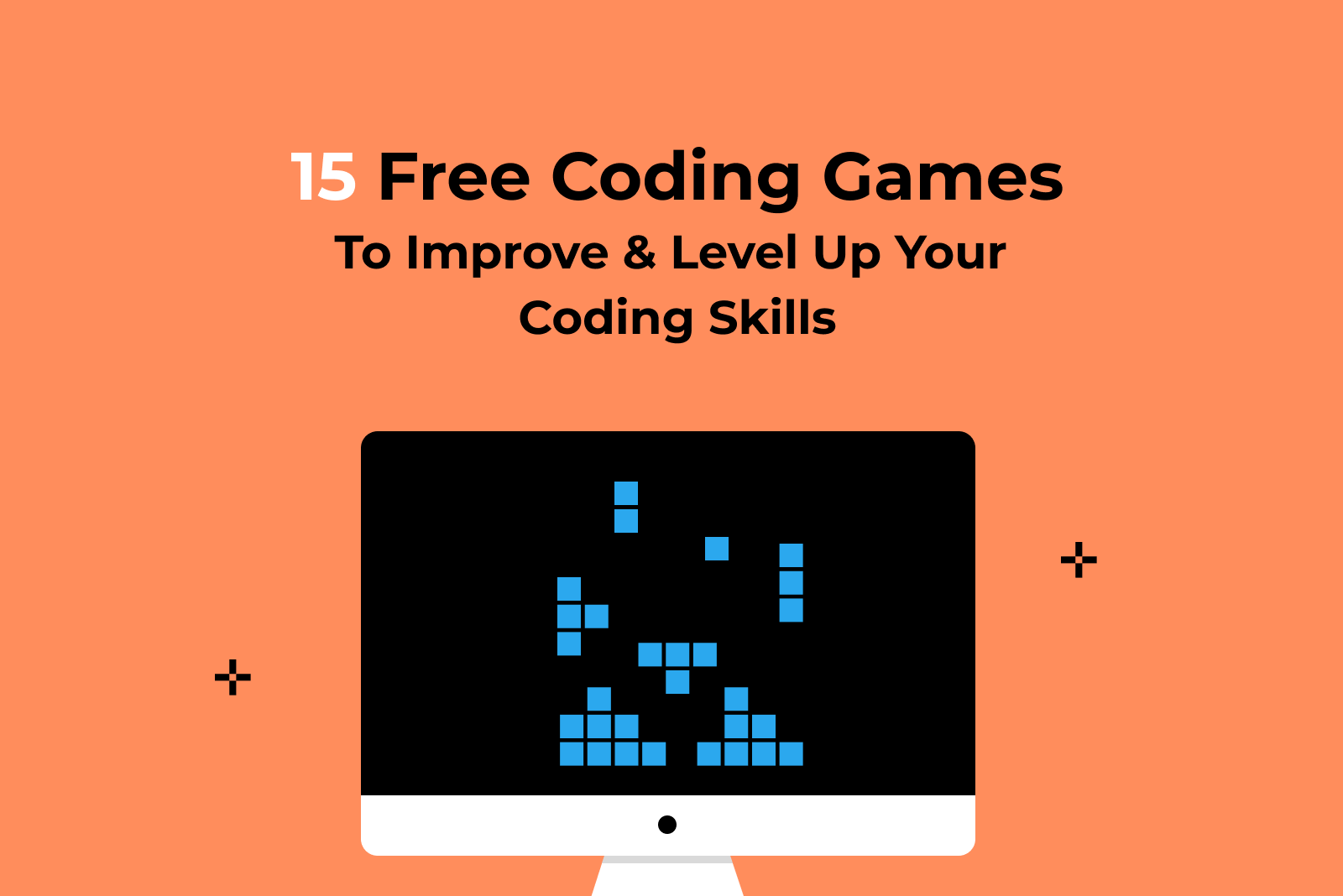How To Pay for A Coding Bootcamp? Your Financial Options
How much does a coding bootcamp cost and how much should you pay for one? Read on for the answers to these questions, and more.

If you’re trying to decide if you’re going to start a new career in tech by learning to code or become a designer, there’s a lot to consider.
And it’s not just about if tech is right for you, or what it actually takes to become a developer or learn design skills, or even about designer and developer salaries. You’re probably also trying to figure out how you’re going to pay for your coding bootcamp or other learning program.
The cost of your training program will obviously play a big role in determining how you decide to pay for your tech education. While you can earn great money in tech, the cost of coding bootcamps is still significant, even if they are often way less expensive than getting a degree at a college or university.

If you’re on the fence about coding bootcamps versus self-learning or even a university degree program, you might consider: what is the cost of tuition for a coding bootcamp? What are financing options for bootcamp students? Do bootcamps offer scholarships or payment plans?
In this post, we’re going to explore your coding bootcamp payment options, from private student loans to coding bootcamp scholarships.
Table of Contents
- How much do coding bootcamps cost?
- How much should I really pay for a coding bootcamp?
- What are some ways to pay for coding bootcamps?
- Can you get financial aid for a bootcamp?
- Is it possible to get a student loan for coding bootcamps?
How much does a coding bootcamp cost?
According to the Bureau of Labor Statistics, the average web developer makes $77,200 per year. That means that a bootcamp, which can cost anywhere from $1,480 to $30,000 with a median price of $13,580 (according to BestColleges), may pay for itself pretty quickly.
(If you’re curious how much our programs here at Skillcrush cost, check out our Break Into Tech program page. TL;DR: our flagship program costs about $2,499, before applying any special discounts.)
How much a coding bootcamp costs can also vary depending on the technical discipline. Web development and UX/UI design bootcamps tend to cost around $12,500 on average. Meanwhile, data science and software engineering bootcamps can cost around $15,000.
Some university-affiliated bootcamps may also cost less than private providers like Hack Reactor or General Assembly, though private schools provide a variety of payment options from scholarships to coding bootcamp loans to borrower/cosigner programs.
Despite the upfront costs, a bootcamp education has the potential to pay off relatively quickly. Per the Council on Integrity in Results Reporting (CIRR), bootcamp graduates find employment in their fields at a high rate — between January and June 2019, the average percentage of graduates employed in the field 180 days after graduation is around 79%.
How much should I pay for a coding bootcamp?
For the aspiring software developers out there, how much you should expect to pay for a coding bootcamp depends on your specific needs and what kind of program you plan to enroll in.
In our post How to Decide if You Should Pay to Learn to Code Online, we dig deep into the question of what to look for in a virtual classroom … and when you should pay to learn to code — versus when to stick with free online coding courses.
Things to consider: Would you enroll part-time or full-time, in person or online? Are you a self-study type of learner or do you need a very structured environment? (And more!) All of these can help you decide if it’s worth it for you to pay money to learn to code.
One thing to keep in mind is that online programs can be more affordable. In Course Report’s online bootcamp cost comparison, they found that remote coding bootcamps cost less than in-person bootcamps — the average online bootcamp tuition is $11,118 (and lasts about 15 weeks) while in-person bootcamp tuition is $11,906 on average (and lasts about 14 weeks).
Both part-time and full-time programs can cost between $1,480 and $15,000 — a part-time program isn’t necessarily cheaper, it will just take you longer to complete.
When all is said and done, your needs will ultimately determine what kind of program might be most suitable for you, and thus, how much you could be paying — without student aid or scholarships, that is.
For context, Skillcrush’s Break Into Tech program and Job Guarantee, which prepares students for careers in web development and design and includes a job search training track called Get Hired, costs $2,499. It’s completely online and self-paced. While we don’t offer scholarships, we do offer unemployment, student, and military discounts.
📌 Related: Is Skillcrush Legit? A Review of Skillcrush’s Break Into Tech Program
What are some ways people pay for coding bootcamps?
Let’s say you’re ready to commit to a bootcamp and put down your hard-earned money to learn coding skills. The next step is deciding how to pay for it. People pay for coding bootcamps in a variety of ways — through scholarships, Income Share Agreements (ISAs), student loans, credit cards and loans, or in cash.
Scholarships
Some coding schools offer their own scholarships for students. Galvanize, for example, has a scholarship, as does Coding Dojo, which has scholarships for women in tech, diversity, and military service members.
Income Share Agreements (ISAs)
Income Share Agreements are a popular way for coding bootcamps to make their programs more attractive to prospective students. Basically, ISAs offer to forego upfront payment of tuition in exchange for a percentage of a graduate’s future earnings.
In other words, tuition is deferred, but the school collects a certain amount of money from your paycheck for a period of time after you find a job.
For example, with Lambda School, you’ll pay “17% of your post-Lambda School income for 24 months, but only once you’re making more than $50,000 per year (or the equivalent of $4,166.67 per month). The ISA is capped at $30,000, so you’ll never pay more than that for any reason. And if you don’t get hired? You never pay.”
Using the Lambda School ISA calculator: if you make $4,166.67 per month, your monthly payment will be $708.33 per month for 24 months, which is roughly $17,000 at the end of two years.
Other coding bootcamps that offer ISAs include App Academy, Thinkful, and Flatiron School.
While ISAs may seem like a dream come true, there are disadvantages with ISAs.
Before you commit, read our post, Income Share Agreements: What You Need To Know, to learn more about the risks associated with ISAs — such as the fact that ISAs aren’t required to offer advantages like forbearance or hardship deferments that traditional loans offer, which protect students who are unable to pay.
Student Loans and Financing
Another way students pay for coding bootcamps is through student loans and financing. Programs like Climb Credit or Ascent offer student loans, while bootcamps like Hack Reactor, Flatiron School, and General Assembly accept funding through these lenders.
While student loan programs may offer lower interest rates than personal loans, your credit score will still come into play (though Climb Credit does allow borrowers to have a cosigner).
Cash Payment in Full or Via Installments
Finally, many students pay for coding bootcamps upfront or in installments. Coding Dojo, Actualize, Covalence, and Bloc accept installment payments. Tuition for Skillcrush’s Break Into Tech + Job Guarantee can be paid in monthly installments or upfront (at a discounted rate).
You may be wondering why Skillcrush’s Break Into Tech program is so much more affordable than other remote bootcamps.
Our CEO, Adda Birnir, explains,“Our mission at Skillcrush is to empower underrepresented groups — with a focus on women and BIPOC — with the tech skills they need to enter higher earning careers in tech.” Which means that it’s critical we don’t let our tuition become cost-prohibitive. Adda adds, “Core to that mission is accessibility and affordability,” meaning we want to make sure our program is available to everyone, no matter where they are.
“Providing both teaching and job search coaching services is not cheap,” Adda says, “But we do our best to keep costs down so that we can serve as many students as possible!”

Can you get financial aid for a bootcamp?
As mentioned above, many coding schools offer their own scholarships, usually geared towards women, military members, low income students, or people of color. While many of these scholarships generally cover some or all of the cost of tuition, there’s often an application process (and not everyone is guaranteed financial aid).
So if you’re considering applying for one, you’ll want to plan ahead and give yourself time to get your financial aid sorted before the bootcamp starts.
Unfortunately, there is no FAFSA for coding bootcamps, which means that you won’t be able to receive a Pell Grant for coding bootcamps or other forms of federal financial aid, including federal student loans.
While Skillcrush doesn’t offer financial aid, we do have discounts. Skillcrush offers special discounts for people who are unemployed, full-time students, and current or former military service members. If any of these describe you, you’re encouraged to email [email protected] to ask if you qualify for a discount.
How might you get a student loan for coding bootcamps?
A caveat before we start: The content in this post is for informational purposes only. You should not construe any such information or other material as legal, tax, investment, financial, or other advice.
While we try our best to provide you with helpful information, we are in no way offering any financial advice in this post on how you might pay for coding bootcamp or encouraging one type of payment type over another.
Nerdwallet recommends that if you must take out a student loan, to “steer toward personal loans designed for bootcamp costs and away from credit cards or high-interest personal loans. Bootcamp loans may have lower interest rates and more favorable repayment terms for students.”
They also note that private lenders like Skills Fund and Climb Credit (which we talked briefly about above), partner directly with coding bootcamps to offer loans to attendees. You’ll want to compare interest rates and terms to find the best deal as well as look for deferment and forbearance options, in case you have difficulty repaying the loan later on.
If you’re a veteran with GI Bill benefits, there are some coding bootcamps that are eligible for GI Bill funds.
Nerdwallet notes that you can use the U.S. Department of Veterans Affairs search tool to find coding bootcamps that qualify and that the VET TEC program, which is tied to GI Bill eligibility, but doesn’t deplete the time you have left on your GI Bill, can also be an option for you.
Lastly, if you want to get additional training to hone your coding skills, you may want to check with your employer as well. Some employers offer professional development and training for free, and a coding bootcamp may qualify.





